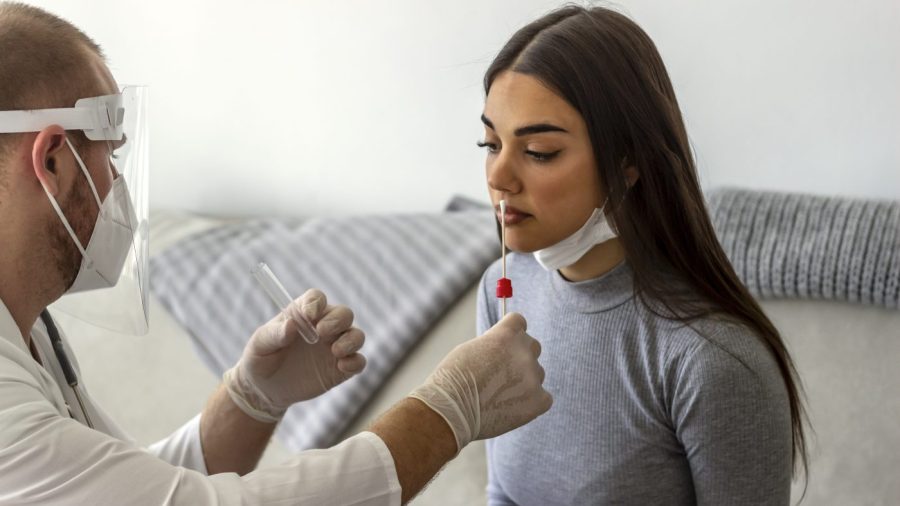A study published on Wednesday shows a history of COVID-19 infection is associated with an increased risk of neurological aftereffects.
“COVID-19 is associated with increased risks of neurological and psychiatric sequelae in the weeks and months thereafter,” reads the study, titled “Neurological and psychiatric risk trajectories after SARS-CoV-2 infection: an analysis of 2-year retrospective cohort studies including 1,284,437 patients.”
Sequelae are conditions resulting from a prior illness or incident.
“How long these risks remain, whether they affect children and adults similarly, and whether SARS-CoV-2 variants differ in their risk profiles remains unclear,” the study, published in The Lancet Psychiatry journal, continues.
The study examined de-identified data from more than a million patients using an international health records network that drew from the U.S., Australia, the U.K., Spain, Bulgaria, India, Malaysia and Taiwan. Most patients considered by the study were American.
The records of patients who had been diagnosed with COVID-19 between Jan. 20, 2020, and April 13, 2022, were evaluated for 14 neurological and psychiatric diagnoses.
The study found that COVID-19 infection was linked to a higher instance of mood and anxiety disorders that declined after 1-2 months.
It also found that COVID-19 infection was associated with an increased risk of dementia, psychotic disorders, epilepsy or seizures and cognitive deficit, or “brain fog,” that remained elevated two years after patients were first diagnosed with the virus.
The risks of those aftereffects varied for different age groups, according to the study.
“A sizeable proportion of older adults who received a neurological or psychiatric diagnosis, in either cohort, subsequently died, especially those diagnosed with dementia or epilepsy or seizures,” the study reads.
Children were not found to be at increased risk of mood or anxiety disorders in the six months after infection, but did see an increased risk of “cognitive deficit, insomnia, intracranial haemorrhage, ischaemic stroke, nerve, nerve root, and plexus disorders, psychotic disorders, and epilepsy or seizures.”

































